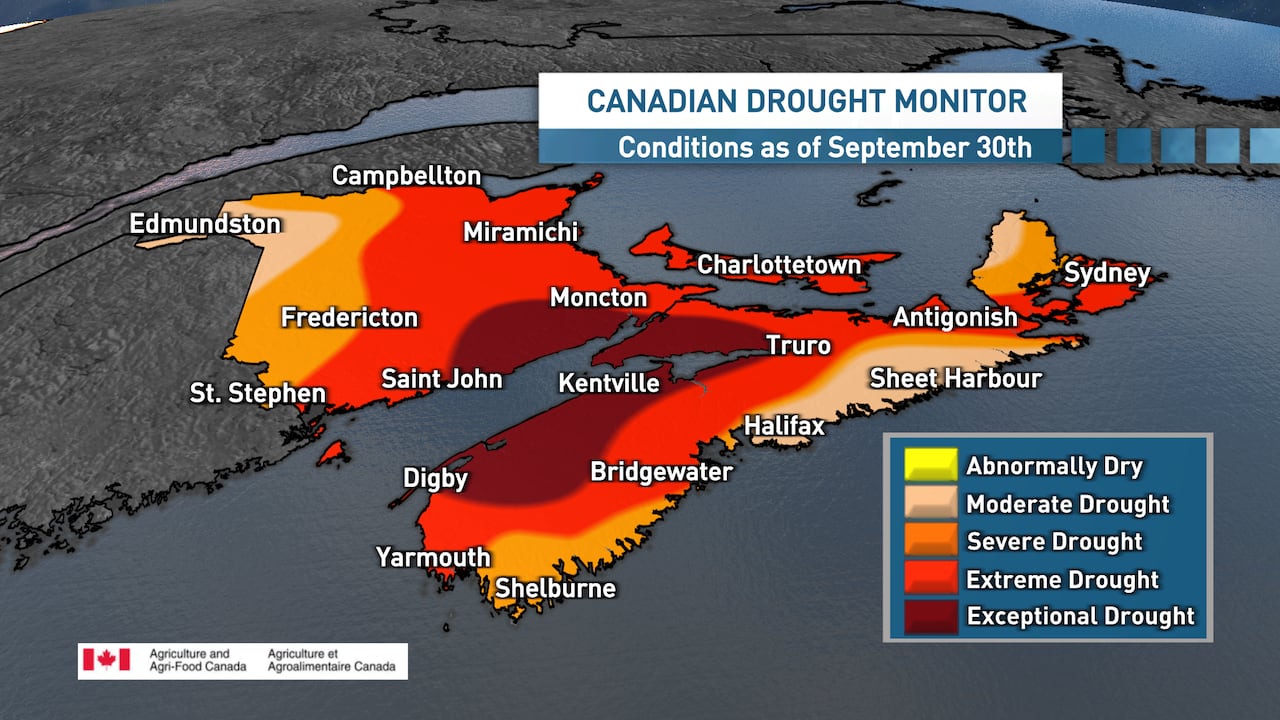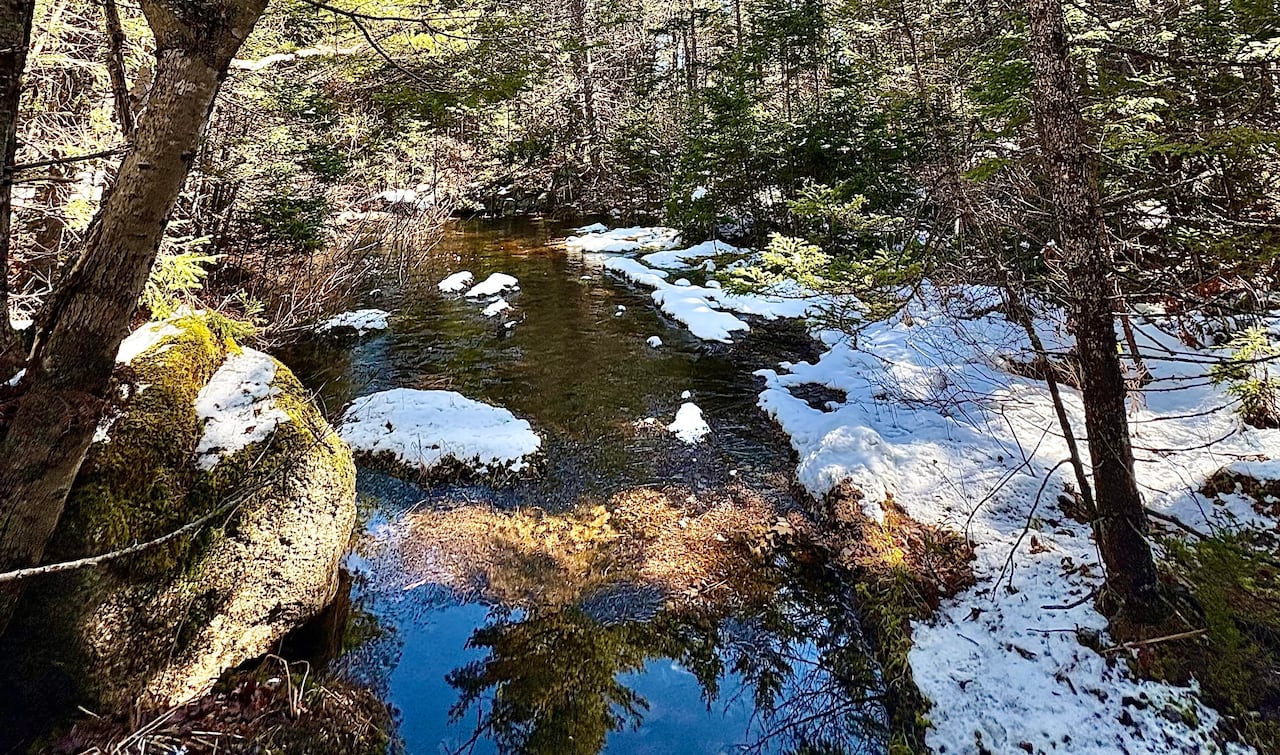Rivers are running low across much of the Maritimes due to the ongoing drought and wells are going dry in some communities. Now the clock is ticking on replenishing the water table before the ground freezes this winter.
Looking back over the past six months, the precipitation deficit for most of the region is in the range of 100 to 300 millimetres.
That has put much of the Maritimes in a severe to extreme drought, with huge impacts on agriculture and of course the water table.
The drought is causing serious water shortages and dry wells in parts of the Maritimes, with the lack of rainfall leading to water depletion in underground aquifers.

Once winter settles in and the ground freezes, ice fills the holes in the soil, making it much harder for water to infiltrate and recharge the water table. We see more water running off and less absorption into the ground.
So the coming weeks will be pivotal for at least starting the process of recharging our water table. However, even with some beneficial rainfall before the ground freezes, the deficit is so large that we should all be hoping for a good old-fashioned winter with lots of snow.
Snow that accumulates throughout the winter season acts like a natural reservoir and while it doesn’t help at the time, as it slowly melts in the spring, it can be absorbed back into soil and recharge the water table.

If Old Man Winter really delivers, the upcoming cold season could actually help with our drought recovery for the long term and into next year’s growing season.
However, if the drought continues into the winter and we don’t see even the average snowfall we need, this will have even larger implications for next year’s crops and of course our water table.
MORE TOP STORIES






